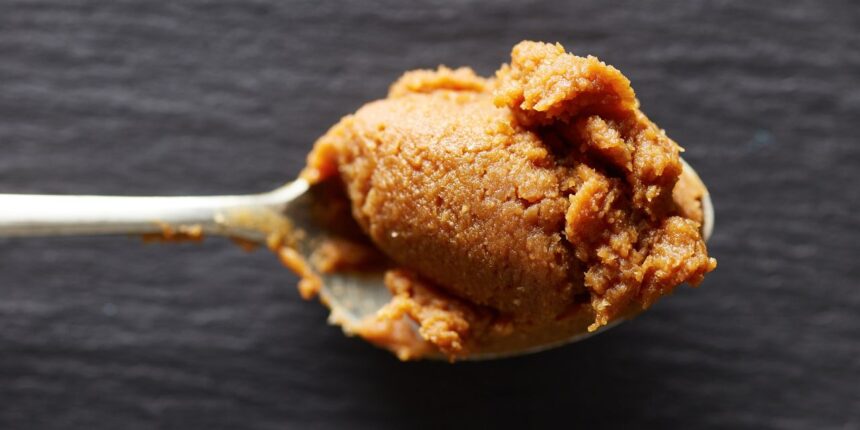Miso soup is a beloved staple of Japanese cuisine, often enjoyed as a warm, comforting start to a meal. But did you know this humble dish isn’t just tasty—it’s also brimming with incredible health benefits? As a dietitian, I love uncovering the hidden nutritional gems in everyday foods, and miso, one of this soup’s main ingredients, is one worth celebrating. Whether you’re a lifelong fan (let’s be honest, it’s everywhere these days) or just discovering it, there’s so much to appreciate about miso. Let’s explore what makes this ancient superfood so special.
What is miso?
Miso is a paste made from fermented soybeans, water, salt, and a special mold called koji. This fermentation process not only gives miso its unique, savory flavor but also unlocks a host of health benefits, much like other beloved fermented foods such as kimchi, sauerkraut, and yogurt.
It’s been around for more than 1,300 years, with regional variations and artisanal techniques passed down through generations. It’s beloved for its taste, but also its versatility: From miso-marinated fish to dengaku (miso-glazed vegetables or tofu) and even miso pickles, its deep roots and adaptability make it a cherished cornerstone of Japanese food culture—and easy to use in any kitchen today. Luckily, you can now find it in many American supermarkets, or, of course, at your local Asian specialty foods store.
What makes miso so good for you?
Miso isn’t just a flavor booster; it’s a nutritional multitasker. From gut health to heart health, this fermented paste offers a range of benefits that make it worth adding to your meals.
Gut health support
One of the standout benefits of miso is its probiotic content. Because it’s fermented, miso is a source of live and active cultures that support a healthy gut microbiome. These probiotics help support digestion, enhance nutrient absorption, and support immune health.
Pro tip: To preserve its probiotics, take care to not overheat miso. Add it to soups or dishes at the end of cooking to keep those beneficial probiotics alive. Overheating can quite literally cause them to die before they work their magic in your body.
A source of essential nutrients
Miso is a low-calorie source of several key nutrients. It contains protein and fiber, both of which are crucial for overall health. It’s also a source of manganese, a mineral that aids brain and nerve function, and vitamin K, which promotes circulatory and bone health. What’s more, the fermentation process makes these nutrients easier for your body to absorb, giving miso an edge over nonfermented foods.
Immune support and cancer risk reduction
Miso’s benefits don’t stop at your gut or heart. Since approximately 70% of your immune system resides in your gut, the probiotics in miso may play a role in supporting your immune health.
Read the full article here



